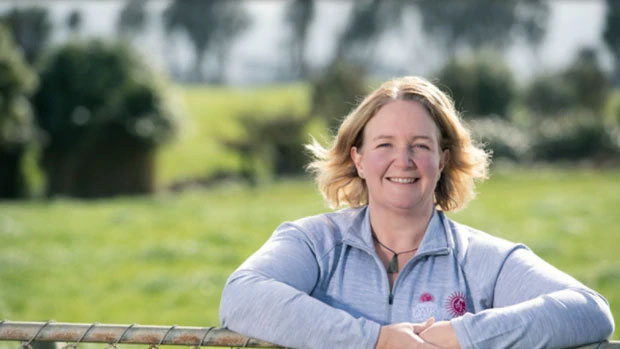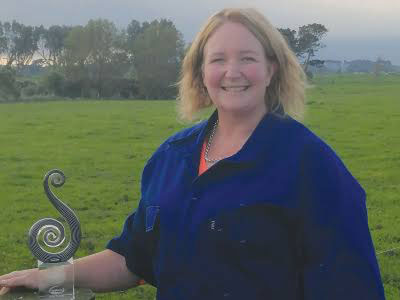Collective Impact: How working together benefits the environment
Trish Rankin – Fonterra Dairy Woman of the Year
“What are you doing!?” Trish exclaimed to friends who failed to put bottles in the recycling bin at a dinner party she was hosting. This was the lightbulb moment which kickstarted her passion for change – to educate farmers on the importance of working together, to create a better environment.
South Taranaki farmer, Trish Rankin, was recently named the 2019 Fonterra Dairy Woman of the Year. This award is significant as it recognises the work she is doing beyond her own farm gate to make an impact in the wider industry.
Trish is not afraid to take on a challenge. She’s completed the Kellogg Rural Leadership Programme, focusing on how a circular economy model can be extended to New Zealand dairy farms – all while juggling her roles as mother, farm assistant and CEO, teacher and Chair of the Taranaki Dairy Enviro Leader Group.
“In its simplest form, circular economy is making the most of resources in a sustainable way, so they can regenerate.”

Is there a better way?
While the impact of farming on the environment is a global issue, conversations have to start at home. Trish aims to shift the mindset of those around her by encouraging her own team to always ask the question “is there a better way?”
“It’s not just about cutting cow numbers. It’s about asking how can we reduce emissions from our own processes all the way to the person who drinks a glass of milk,” Trish says.
This approach requires a willingness to be wrong; to let go of the ‘the way things have always been done’ mentality and to accept that the ‘easy’ way is not always the ‘best’ way. “We are way too reactive,” says Trish.
“That means taking into consideration things like transport, processing and packaging. What if I reduce my rubbish? Or what if I send my stock to meatworks closer, can I reduce my emission numbers that way?”
“
Let’s not wait for someone to complain before we do something about it. Instead, let’s look at what ‘best practice’ really means.
“These choices matter and all these decisions add up to make a difference.”
How information supports change
Having the right information to understand what the farm business is producing and consuming is important.
“The benefit of data is that you can’t argue with it, but you can discuss it.With access to data, we can see what others are doing, and challenge each other to do better for the good of the industry.” This sparks the conversations necessary for change, says Trish.
For Trish, Agrigate helps spark these conversations with her team, as she has a simple view of farm performance, and can share that information with rural advisors. “Bringing in a team of experts – farm consultants, accountants or specialised practitioners – who can challenge and bring perspective to your operations is useful.”
Making bold decisions
Trish says “when the farming community comes together as a collective, you can see the results and the impact”

“It’s important to surround yourself with progressive thinkers; people who are equally committed to bringing fresh thinking and finding solutions.”
She also knows that leading change means making bold decisions. With this in mind, Trish intends to use her scholarship prize from the awards to attend an offshore agribusiness seminar. From this experience, she will not only access insight to progress her own farming business, but come home with inspiration and knowledge to make the dairy industry a better place for all today – and tomorrow.
